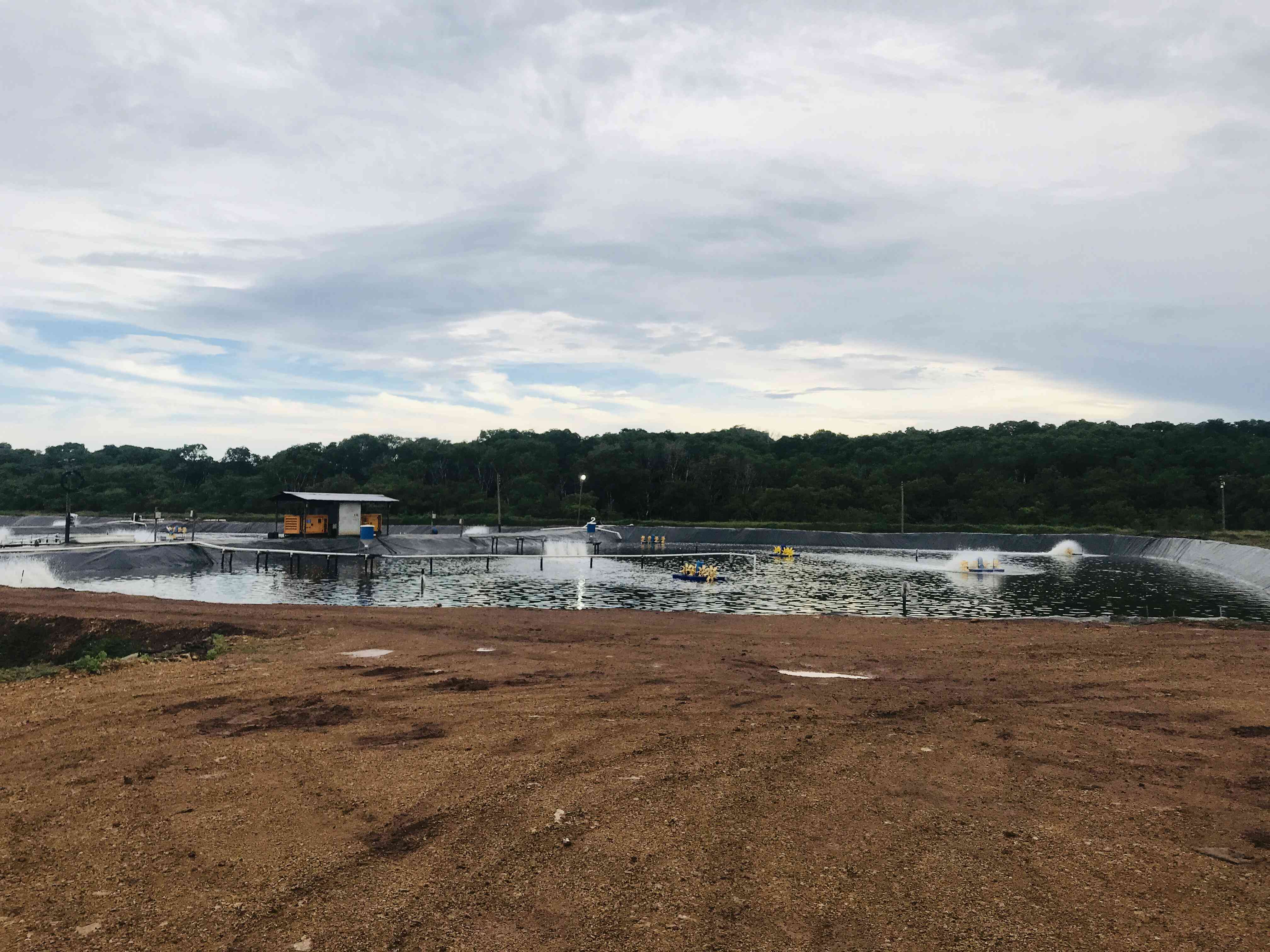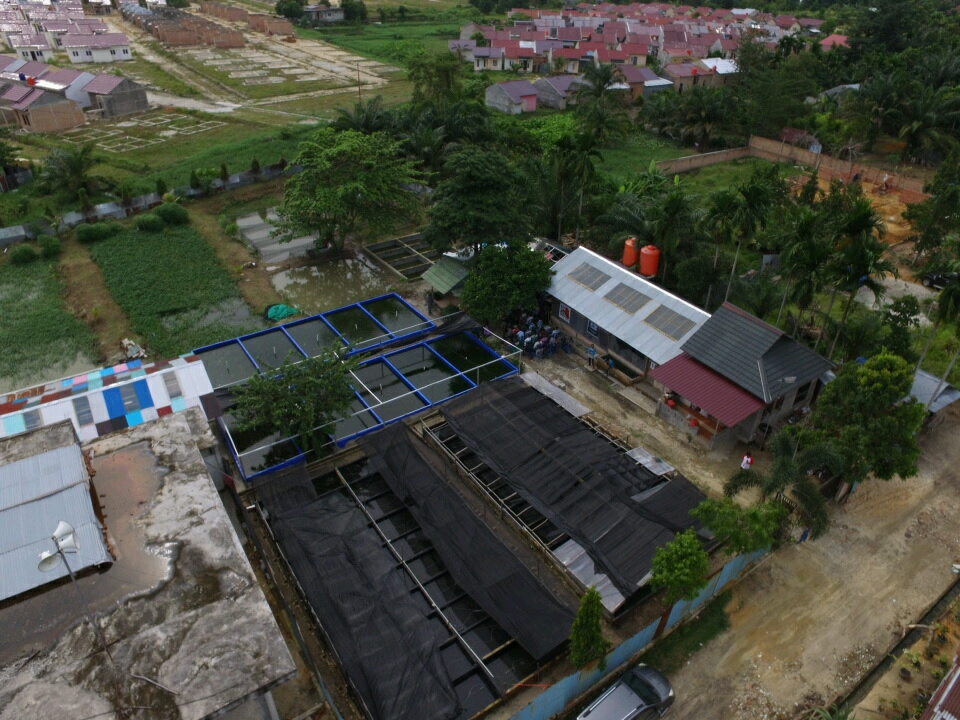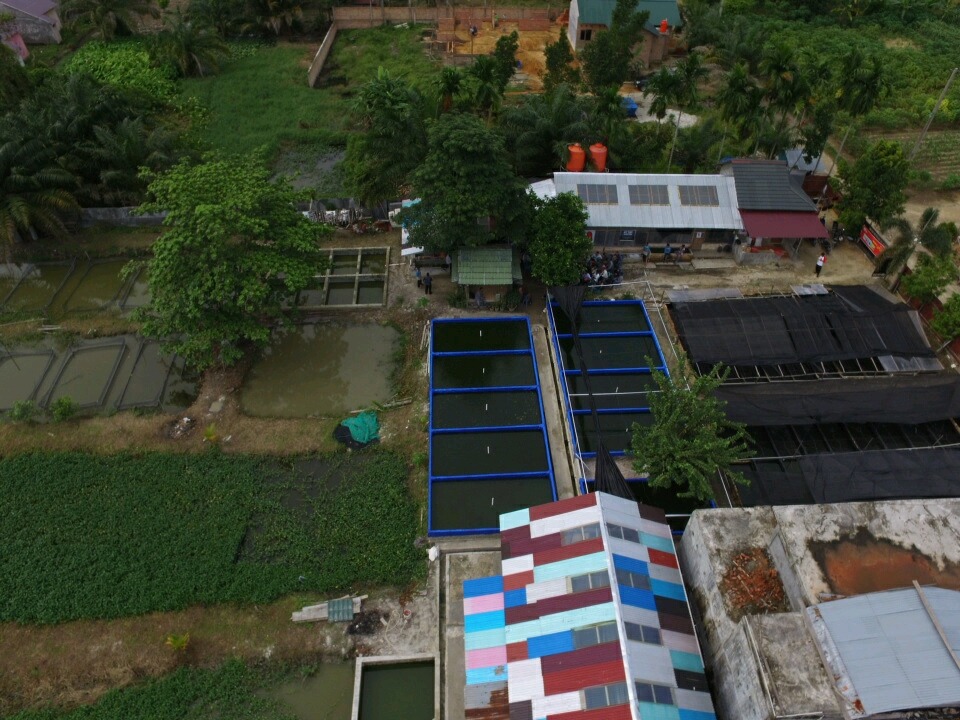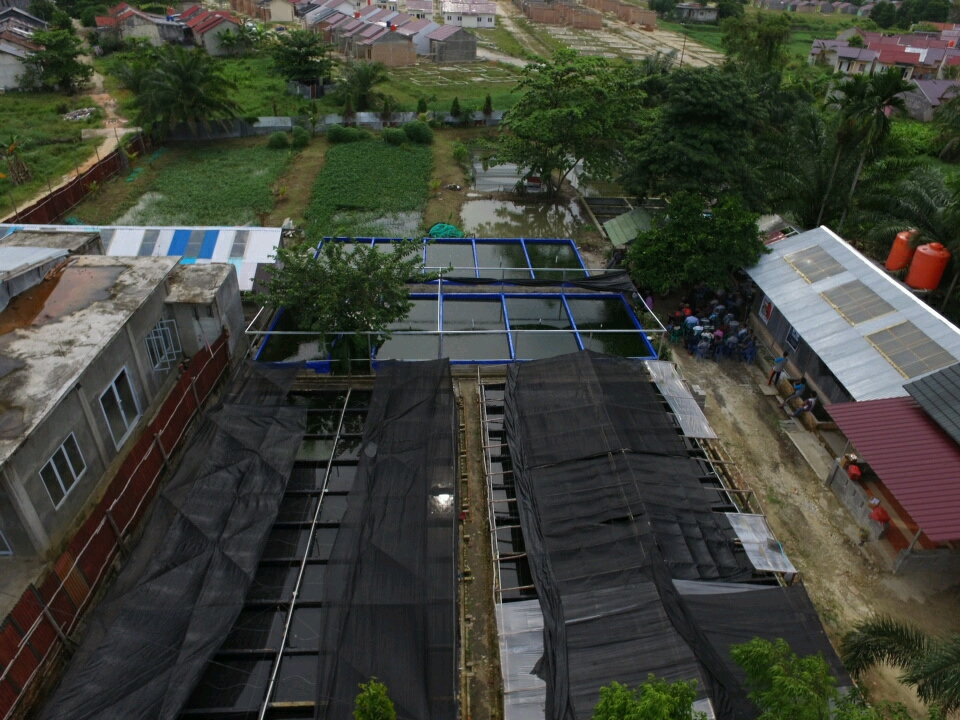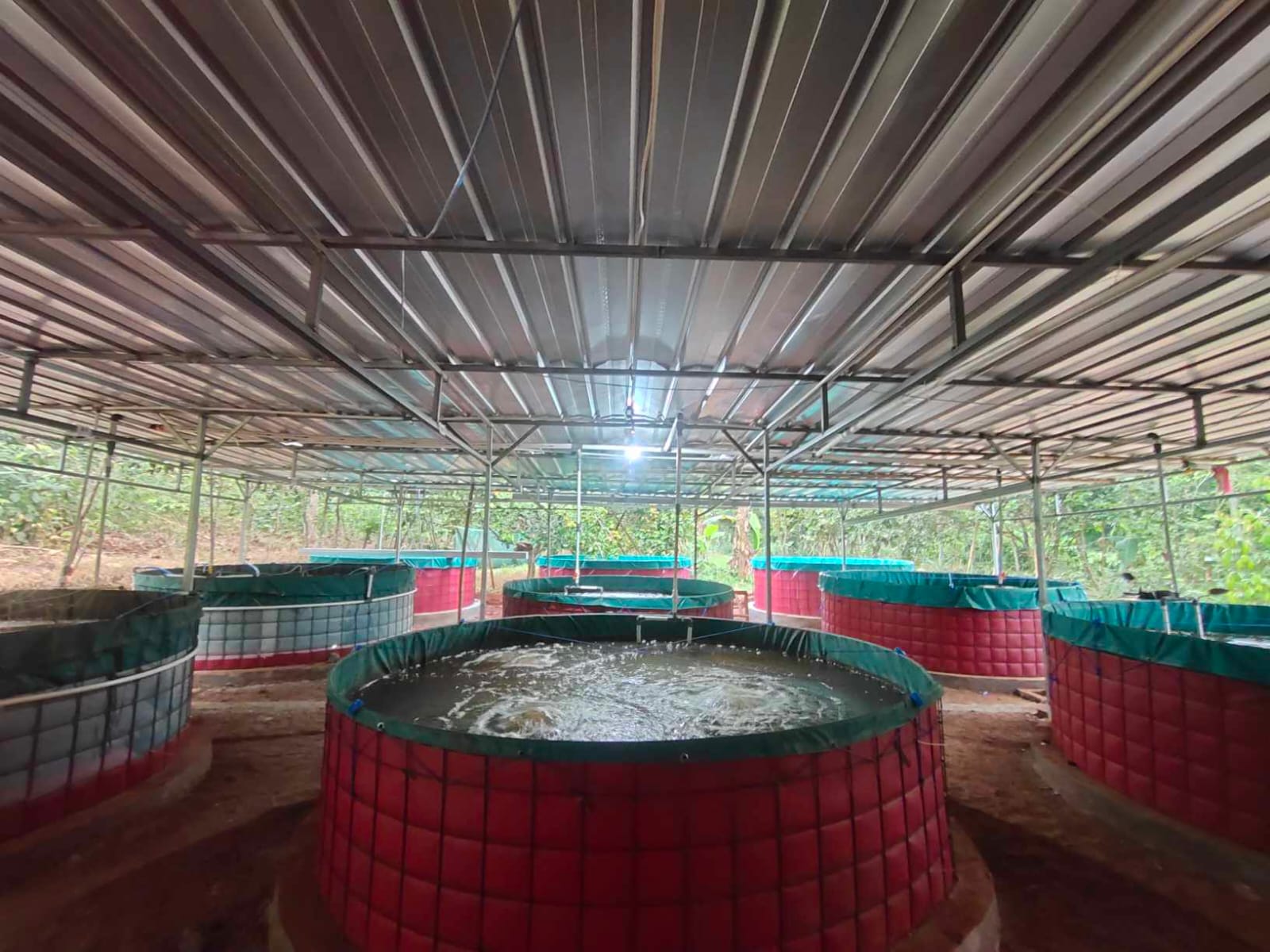Cultivating freshwater fish with a biofloc system; international intensive training in Pekanbaru City
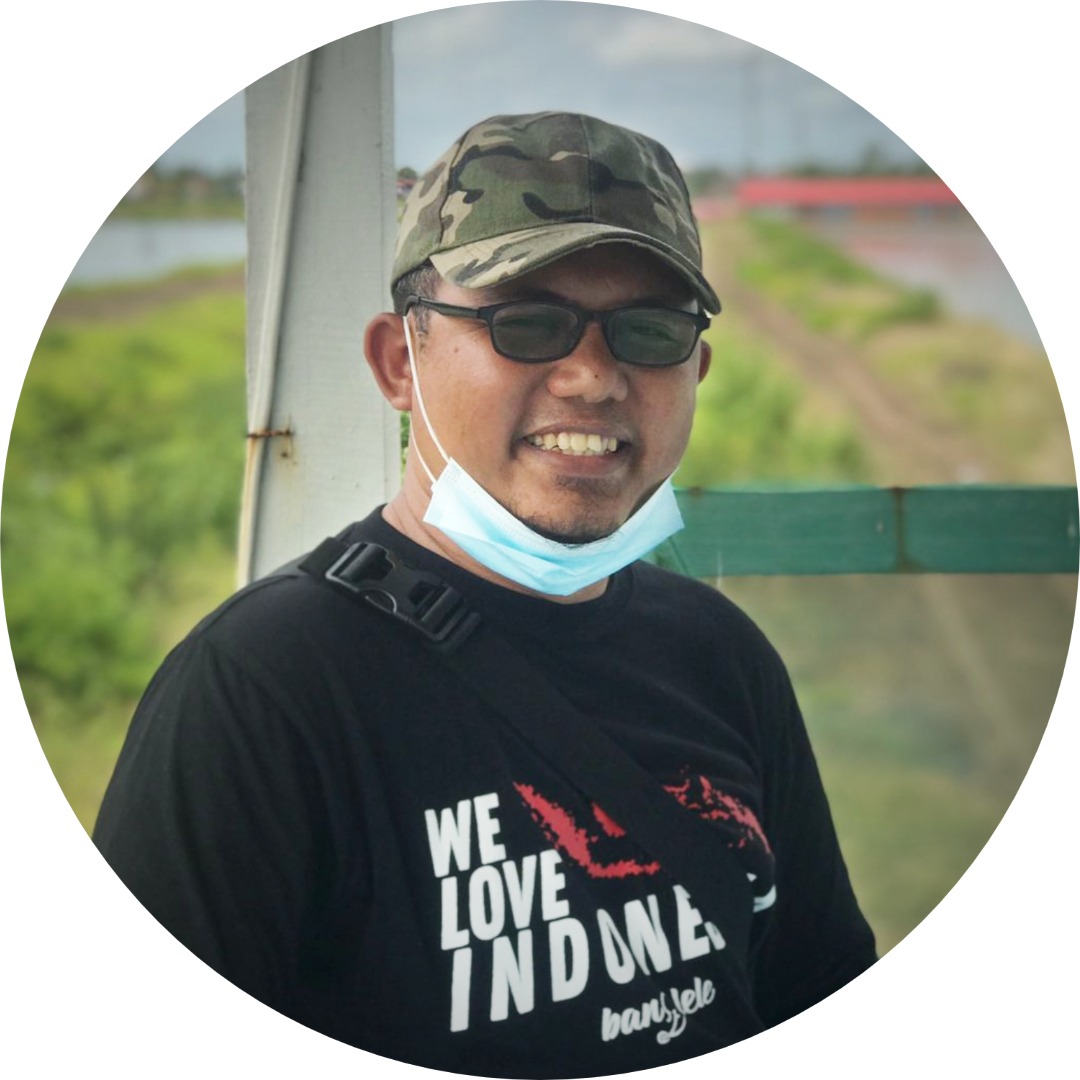

Image Source : banglele.co.id
Fish is an important source of animal protein for humans. Fish farming has become a vital economic activity in many countries, and innovative ways to increase its productivity continue to be developed. One system that is increasingly popular in fish farming is the biofloc system.
To provide knowledge and skills in this system, intensive international training was held in Pekanbaru City by Banglele Indonesia, which was attended by participants from various countries such as countries in South Asia, Southeast Asia, America and Canada.
Biofloc; innovation in freshwater fish farming
Biofloc is a fish farming system that promotes innovation and sustainability in the fishing industry. The main principle of this system is to develop colonies of bacteria and microorganisms in water to be used as additional food for fish. This is a very different approach from conventional systems that rely on expensive artificial feeds. By utilizing microscopic organisms in water, fish farmers can create natural food resources that are sustainable and more economical.
In aquaculture, these lumps of organic material will later become feed for the commodities being cultivated. In catfish cultivation, floc production uses catfish waste itself. By growing microorganisms, cultivation waste will become environmentally friendly and can be used as feed for catfish.
The microorganisms grown must be non-pathogenic and have the ability to synthesizePoly Hydroxy Alkanoates (PHA), produces enzymes and is able to neutralize existing toxins. The growth of microorganisms itself can be done by giving probiotics to the cultivation pond and installing an aerator to supply oxygen and as a means of stirring the pond water.
With this environmentally friendly and efficient approach, the biofloc system has received widespread attention in the fish farming industry. This not only helps fish farmers in increasing their productivity, but also contributes to environmental conservation and reduces negative impacts on aquatic ecosystems. The biofloc system is a clear example of how innovation in fish farming can bring sustainable benefits to farmers and our environment.
International training in Pekanbaru City; building capacity in biofloc cultivation
The city of Pekanbaru, located in Riau Province, hosted this international intensive training organized by Banglele Indonesia. This training is a much needed platform to share knowledge and skills in cultivating freshwater fish using the biofloc system. Trainees come from countries around the world, bringing a great deal of curiosity and interest in the biofloc system.
Training participants come from countries in South Asia, Middle East, and Southeast Asia, such as India, Bangladesh, Pakistan, Nepal, Iran, the Philippines, Malaysia, and Singapore. Not only that, participants from America and Canada also came to join this training. The presence of participants from various parts of the world makes this training a very valuable venue for cultural exchange and knowledge sharing.
One of the training participants from South Asia
Why is international training important?
Cultivating freshwater fish with a biofloc system is an innovative solution to overcome challenges in fish farming. This system helps in increasing productivity, reducing environmental impact, and ensuring a sustainable fish supply. Therefore, intensive training like this is essential to:
- Increase capacity; This training provides the knowledge and skills necessary to adopt a biofloc system. This helps fish farmers to increase their production capacity.
- Improve product quality; with the use of the biofloc system, the fish produced is of better quality because the water quality is well maintained. This makes fish products of higher quality and higher economic value.
- Reduce environmental impact; biofloc systems help reduce waste and save water use, thereby helping to protect the environment.
- Exchange experiences; This training allows participants to exchange their own experiences and knowledge, thereby creating a strong global network in fish farming.
Training materials
During this intensive training, participants are filled with in-depth knowledge of the biofloc system, which includes an understanding of the basic principles underlying its success. They are not only given a general view of this concept, but also understand in detail how to utilize and manage colonies of bacteria and microorganisms that live in water as an additional food source for fish.
The training material covers various crucial aspects, from selecting optimal pond locations for cultivation to water quality management which is important for fish welfare. The participants also studied disease control in the biofloc system, which is a key factor in maintaining successful cultivation, as well as an efficient feeding strategy.
Along with a deep understanding of the basic principles of the biofloc system, trainees are also taught about practical aspects which include choosing the right location for the pond. Factors such as sunlight, water sources and the surrounding environment are important considerations in ensuring fish farming runs smoothly.
Apart from that, controlling water quality is a very important focus in this training, because good water quality is the key to success in fish growth and health. Participants also gain insight into how to identify, prevent, and treat fish diseases that may arise in the biofloc system.
Training also includes efficient feeding strategies. With an understanding of how to manage fish feed wisely, participants can optimize fish growth and health, while reducing costs associated with artificial feeds. Additionally, they learn about the equipment needed to operate the biofloc system, starting from aeration to water filtering. This entire series of training aims to give participants the tools they need to succeed in fish farming with the biofloc system.
Explanation of cultivation training materials with the biofloc system
Positive impact on the freshwater fish industry
The impact of this training on the freshwater fish farming industry is very significant. Participants return to their home countries bringing home in-depth knowledge of the biofloc system, as well as the practical skills required to implement them effectively. This provides a huge boost in adopting the biofloc systemat the local level in various countries. Fish farmers who have received this training become agents of change who play a role in changing the way fish farming is carried out, with a greater focus on sustainable and environmentally friendly practices.
With an increasing number of fish farmers switching to the biofloc system, the freshwater fish farming industry is experiencing rapid growth. This creates a more sustainable environment and is efficient in meeting demand for freshwater fish products. Apart from that, this sustainability also has a positive impact on the environment, because the biofloc system helps reduce waste and maintain better water quality. As a result of this training, the freshwater fish farming industry has become more environmentally friendly, efficient and sustainable, with the potential to meet the growing demand for fish globally.
Facing future challenges
Although the biofloc system offers many benefits, there are some challenges to overcome. One is the initial cost of setting up the system, including investment in equipment and training. However, with international training such as the one held in Pekanbaru City by Banglele Indonesia, fish farmers have the opportunity to reduce risks and understand how to overcome these obstacles.
Apart from that, other factors such as choosing the right location, water quality management, and disease control remain an important focus in fish farming biofloc system. These are all topics that are deepened during the training, giving participants the tools necessary to overcome these challenges in the future.













